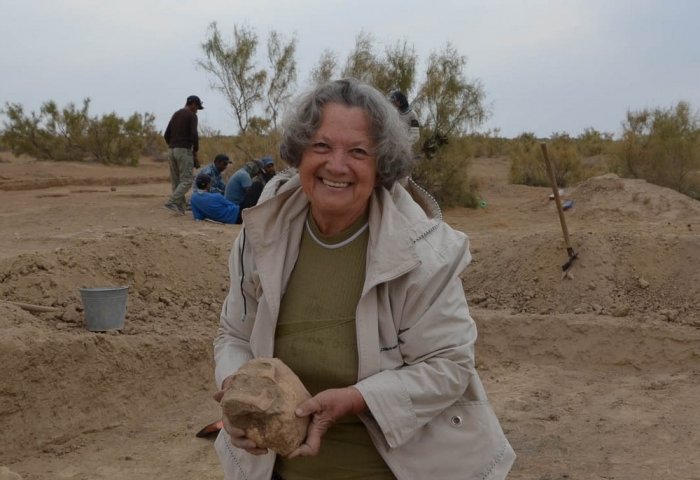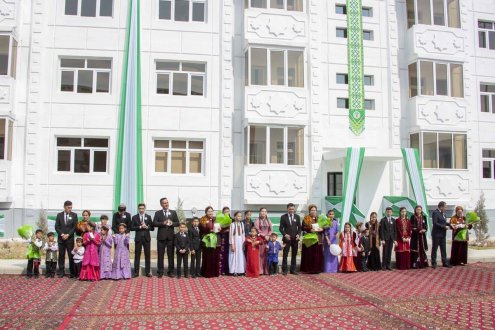During excavations at the ancient site of Gonur-Depe in the Karakum Desert, Russian and Turkmen archaeologists discovered a seal depicting a crescent moon and three stars. This may be the oldest known astronomical depiction found in Turkmenistan, reported TASS on Sunday, citing an interview with Nadezhda Dubova, the chief researcher at the Russian Academy of Sciences’ Institute of Ethnology and Anthropology and head of the Russian-Turkmen Margiana Archaeological Expedition.
“This year, we’ve added 11 new seals to our extensive collection from Gonur, which already includes several hundred pieces. One seal stands out in particular. Previously, we found many individual stars and crescents, which are also astronomical symbols. However, this seal uniquely features three stars arranged in a specific pattern. Interestingly, the Turkmen have a constellation called ‘Üç Yyldyz’ (Three Stars). We hypothesize that this seal represents an astronomical object, which could make it the oldest such depiction discovered in Turkmenistan. However, astronomers will need to confirm this,” Dubova explained.
Among other significant finds in 2024, the team uncovered evidence of gypsum production and the skull of an animal resembling a horse. Earlier discoveries at Gonur-Depe included the remains of eight horses. Dubova also mentioned that the archaeologists are working on a catalog compiling all findings from the Margiana Expedition over the past 50 years, which includes tens of thousands of artifacts.
Gonur-Depe is an archaeological park and the largest of more than 300 settlements in the ancient delta of the Murgab River. Research suggests that the settlement emerged around 2300-2250 BCE and lasted for approximately 600-800 years. In the Bronze Age, at the turn of the 3rd–2nd millennia BCE, this area flourished with oases that formed the heart of the Margush civilization, which is part of the Bactria-Margiana Archaeological Complex (BMAC). Gonur-Depe has been the focus of archaeological research for over 50 years, continuing to draw attention for its historical significance.


















